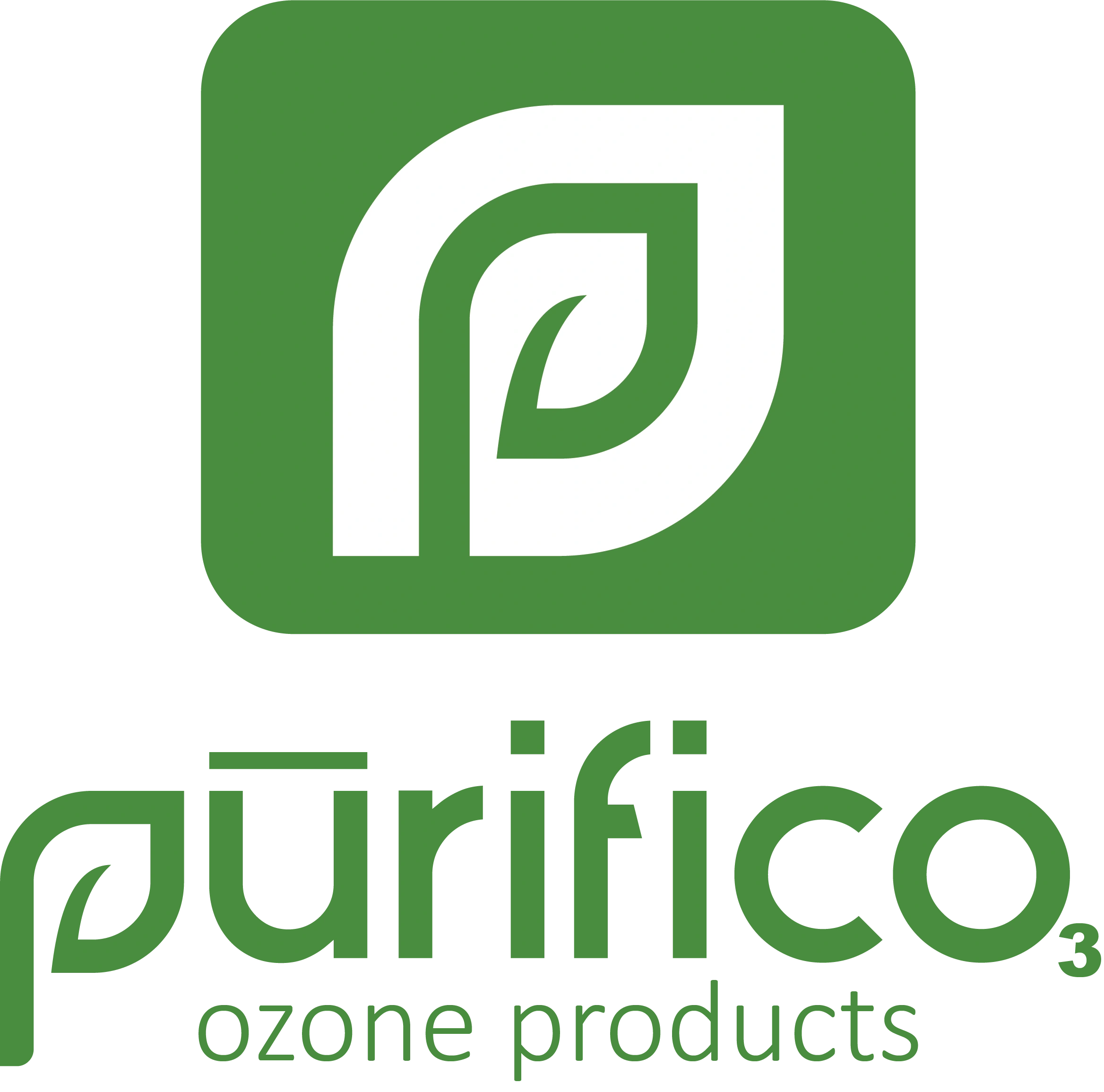In the agricultural industry, crop irrigation plays a pivotal role in determining the success of harvests. However, traditional irrigation methods often come with challenges such as waterborne diseases, chemical buildup, and limited recycling potential.
Ozone, a powerful and eco-friendly oxidant, has emerged as a promising solution for enhancing crop irrigation systems. Its unique properties not only disinfect water and soil but also improve root health, plant growth, and overall yield. This article explores how ozone can revolutionize crop irrigation and help farmers achieve healthier, more sustainable harvests.
The Role of Ozone in Irrigation Systems
Ozone (O₃) is an allotrope of oxygen known for its strong oxidative properties. When introduced into water or soil, ozone reacts with organic matter, harmful microorganisms, and pollutants, breaking them down into harmless components. Its ability to disinfect without leaving toxic residues makes it ideal for agricultural use, especially in crop irrigation.
In irrigation systems, ozone can be applied in multiple ways:
- Direct injection into irrigation water to remove pathogens and organic contaminants.
- Treatment of reservoirs and tanks to maintain water purity.
- Ozonated water application to improve root health, soil aeration and nutrient absorption.
Unlike chemical disinfectants such as chlorine, ozone rapidly decomposes into oxygen, ensuring environmental safety while benefiting plant roots and surrounding soil microbes.
Key Benefits of Ozone in Crop Irrigation
1. Pathogen Control for Disease-Free Crops
Waterborne pathogens like Pythium and Fusarium pose significant risks to crops by attacking roots and causing diseases. Traditional disinfectants are often insufficient or leave harmful residues, making them unsuitable for sustainable farming practices. Ozone eliminates a broad spectrum of pathogens, including bacteria, viruses, and fungi, by rupturing their cell membranes and disrupting their genetic material. This helps farmers prevent outbreaks of root diseases and reduces the need for chemical fungicides.
2. Improved Water Quality and Recycling Potential
Agricultural irrigation often involves large volumes of water, which can be contaminated by organic matter, pesticides, or excess nutrients. Ozone effectively purifies irrigation water by breaking down these pollutants, improving water clarity, and enhancing its suitability for reuse. With ozonated water, farmers can recycle irrigation water multiple times without risking pathogen buildup, significantly reducing water consumption and environmental impact.
3. Enhanced Root Health and Oxygenation
Ozone-enriched water increases dissolved oxygen levels, which is crucial for healthy root development. In soils with poor aeration or compaction, oxygen-deprived roots struggle to absorb nutrients efficiently. The infusion of ozonated water into the soil ensures that roots receive the oxygen they need, promoting stronger root systems and better nutrient uptake. Direct ozone application can even disinfect the surface of roots and the root zone itself, when used appropriately. This creates an ideal environment for plants to thrive, leading to healthier crops and higher yields.
Practical Applications of Ozone in Irrigation Systems
Ozone can be integrated into different stages of agricultural irrigation to optimize crop performance. Below are some key applications:
Reservoir and Tank Treatment
Irrigation water stored in reservoirs or tanks is prone to contamination by algae, bacteria, and organic matter. Ozone treatment helps keep these water sources clean and pathogen-free by preventing microbial growth. With ozone’s ability to break down pollutants, irrigation systems remain microbe- and biofilm-free, improving water flow and distribution.
Nutrient Water Management
In hydroponic systems or farms that use nutrient-enriched water, ozone plays a critical role in preventing contamination. It ensures that fertilizers and additives remain effective without being compromised by microbial activity. Furthermore, ozone-treated nutrient water supports optimal plant growth by maintaining pathogen-free conditions throughout the irrigation cycle.
Drip Irrigation and Micro-Irrigation Systems
Drip and micro-irrigation systems are highly efficient but susceptible to blockages caused by biofilm and organic deposits. Ozone cleans these systems by oxidizing and flushing out buildup, ensuring consistent water flow. This minimizes maintenance requirements and extends the lifespan of irrigation equipment.
Environmental and Economic Advantages of Ozone in Irrigation
1. Chemical-Free Farming for Sustainability
Ozone offers an environmentally friendly alternative to chemical disinfectants, which often leave residues that harm the soil and surrounding ecosystems. The absence of residual chemicals allows farmers to adopt ozone treatment without concerns about regulatory limitations or environmental degradation.
2. Cost-Effective and Low Maintenance Systems
While ozone systems require an initial investment, they offer long-term savings by reducing the need for pesticides, fertilizers, and water. Additionally, ozone is generated on-site using ambient air and electricity, eliminating the need for purchasing or storing chemical agents. The reduced reliance on chemicals also lowers operational costs associated with waste management and disposal.
3. Compliance with Environmental Standards
As global agriculture shifts towards sustainable practices, ozone systems align with international environmental regulations and industry standards. Ozone-treated water meets the highest safety requirements, ensuring that crops are free from harmful residues and suitable for export markets. This makes ozone technology a valuable tool for farmers looking to meet regulatory compliance while improving crop quality.
Overcoming Challenges with Ozone Integration
Although ozone offers numerous benefits, its integration into agricultural systems requires careful planning and management. Key considerations include:
- Proper dosage control: Automated systems equipped with ORP (oxidation-reduction potential) sensors can monitor ozone levels and ensure precise application. Expert consultation for dosing strategies is recommended for best results.
- System compatibility: Some fertilizers or irrigation equipment may be sensitive to oxidation. Farmers must work with experts to design ozone systems that complement their specific needs.
- Training and maintenance: Operators need to be familiar with ozone technology to maintain equipment and troubleshoot issues effectively.
With professional support from companies like Purifico, farmers can overcome these challenges and unlock the full potential of ozone technology.
Conclusion: A New Era of Sustainable Irrigation
Ozone technology represents a breakthrough in crop irrigation, offering farmers an effective way to improve plant health, increase yields, and reduce environmental impact. By integrating ozone into irrigation systems, agricultural producers can prevent diseases, enhance root growth, and recycle water efficiently.
This not only ensures healthier harvests but also aligns with the growing demand for sustainable and eco-friendly farming practices.
As agriculture continues to evolve, ozone will play a crucial role in shaping the future of irrigation systems. With its ability to disinfect, purify, and oxygenate, ozone technology offers a practical solution to many of the challenges facing modern agriculture. Farmers who adopt ozone systems will be well-positioned to meet the demands of the future while ensuring healthier crops and a greener planet.


